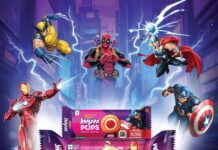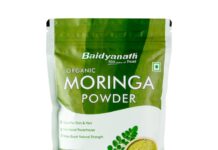
Nestlé is piloting reusable and refillable dispensers for petcare and soluble coffee as part of its efforts to reduce single-use packaging. The in-store dispensers offer consumers a shopping experience that is free of single-use packaging and offers flexibility and variety of product choices.
Consumers can bring reusable containers to purchase different types of Purina cat food and Nescafé soluble coffee. They can also digitally access product information that is typically found on the packaging, such as ingredients, nutritional values and shelf life.
Working in collaboration with the start-up MIWA, Nestlé recently piloted the reusable and refillable dispensers in three Nestlé shops located in Rorschach, Orbe and La Tour-de-Peilz, Switzerland. According to the company’s press statement, during a four-month trial period, the dispensers were well received by consumers and Nestlé was able to gain valuable insights, including user-friendliness. To further assess the dispensers’ effectiveness in preventing packaging waste along the supply chain, the dispensers are now being rolled out across more locations in the next few months.
Hélène Lanctuit, R&D packaging lead at Nestlé, says, “Packaging plays a key role in maintaining food safety during a product’s shelf life. This means that whenever new packaging systems are explored, we need to ensure that our products are delivered safely and hygienically to consumers. These dispensers are novel because they incorporate smart technology which allows us to ensure product safety, and also guarantee the freshness and traceability of our products.”
The development of innovative, alternative delivery systems such as bulk, reuse and refill options are key areas for Nestlé across several product categories. The company has already announced a pilot test for Refill Plus, a water dispenser using state-of-the-art technology. This allows consumers to personalize their water with sixty-four flavor combinations. In partnership with Terracycle, Nestlé is rolling out a loop, a subscription home delivery service in the US, and will soon introduce it in France. Additionally, mini dispensers for Nescafé and Milo are available for the out-of-home segment in many countries around the world.
These innovative systems are part of a broader set of actions to reduce single-use packaging. Building on its commitment to making 100% of its packaging recyclable or reusable by 2025, Nestlé announced plans to reduce the use of virgin plastics one-third during the same period.
Bernard Meunier, chief executive officer of Nestlé Purina Petcare EMENA, says, “At Purina, our teams are focused on designing our products and packaging for a more sustainable future. This pilot marks an important step forward in our efforts towards waste reduction, and we are proud to play a leading role in testing these innovative dispensers. Offering pet owners the option of using safe reusable and refillable dispensers can help us improve our environmental impact while still providing great quality nutrition for pets.”
Philipp Navratil, global head of Beverage Strategic Business Unit at Nestlé, Senior Vice-President, says, “As part of Nescafé’s packaging transformation journey, we have been working hard to rethink how we design our packaging for better environmental impact. We are excited to work on a refilling option made possible by our in-store dispensing system for our consumers who want to enjoy their Nescafé experience at home.”
IndiFoodBev — authentic, impactful and influential
An English-language food and beverage processing and packaging industry B2B platform in print and web, IndiFoodBev is in its third year of publication. It is said that the Indian food and beverage industries represent approximately US$ 900 billion in revenues which implies more than 20% of the country’s GDP. Eliminating the wastage on the farmside can help to deliver more protein to a higher number of the population apart from generating sizable exports. The savings in soil, seeds, water, fertilizer, energy and ultimately food and nutrition could be the most immense contribution that country is poised to make to the moderation of climate change.
To improve your marketing and grow sales to the food and beverage processing and packaging industry, talk to us. Our research and consulting company IppStar [www.ippstar.org] can assess your potential and addressable markets in light of the competition. We can discuss marketing, communication, and sales strategies for market entry and growth.
Suppliers and service providers with a strategy and budget for targeted marketing can discuss using our hybrid print, web, video, and social media channels to create brand recognition linked to market relevance. Our technical writers are ready to meet you and your customers for content.
The second largest producer of fruit and vegetables in the world is continuously expanding processing capacities and delivery systems with appropriate innovative technologies. We cover product and consumer trends, nutrition, processing, research, equipment and packaging from farm to thali. Get our 2025 media kit and recalibrate your role in this dynamic market. Enhance your visibility and relevance to existing markets and turn potential customers into conversations. Ask for a sample copy of our bi-monthly in print or our weekly IndiFoodBev eZine each Wednesday.
For editorial info@ippgroup.in — for advertisement ads1@ippgroup.in and for subscriptions subscription@ippgroup.in
Naresh Khanna – 10 February 2025
Subscribe Now










